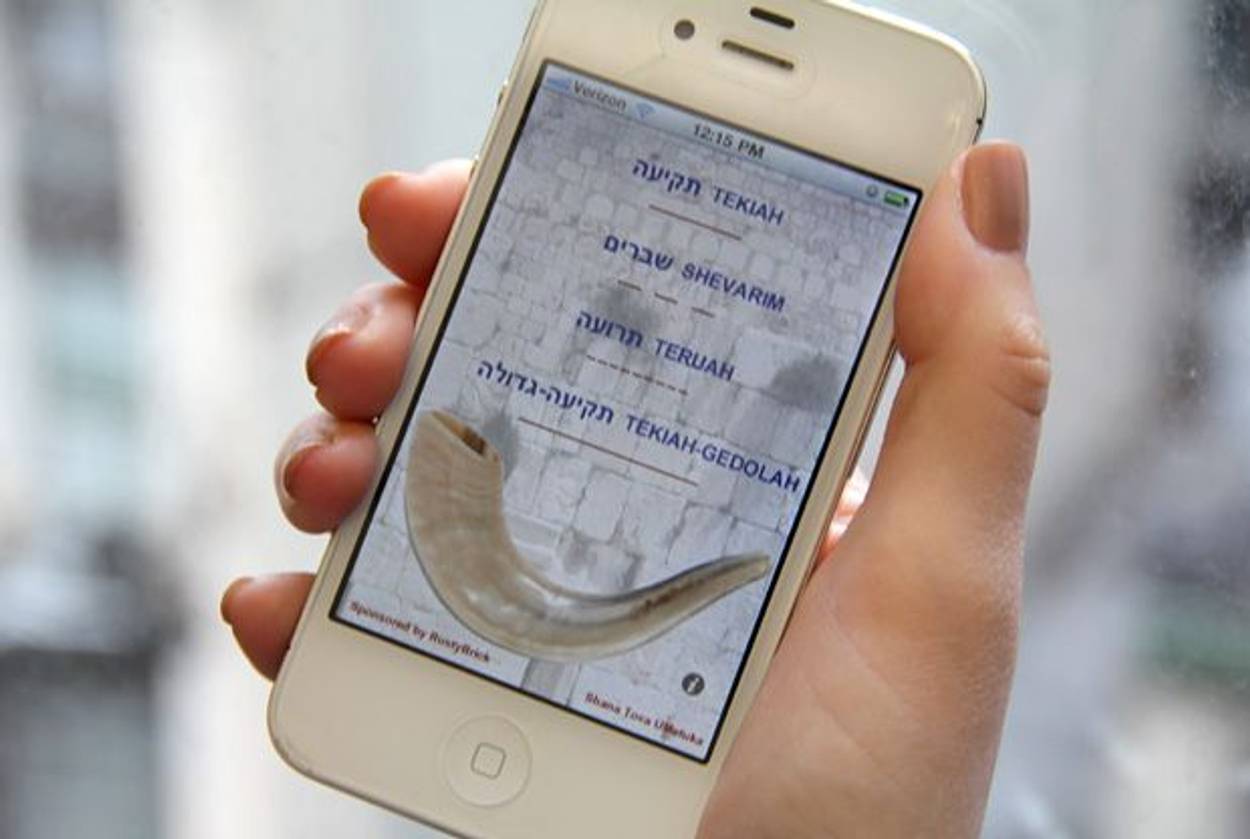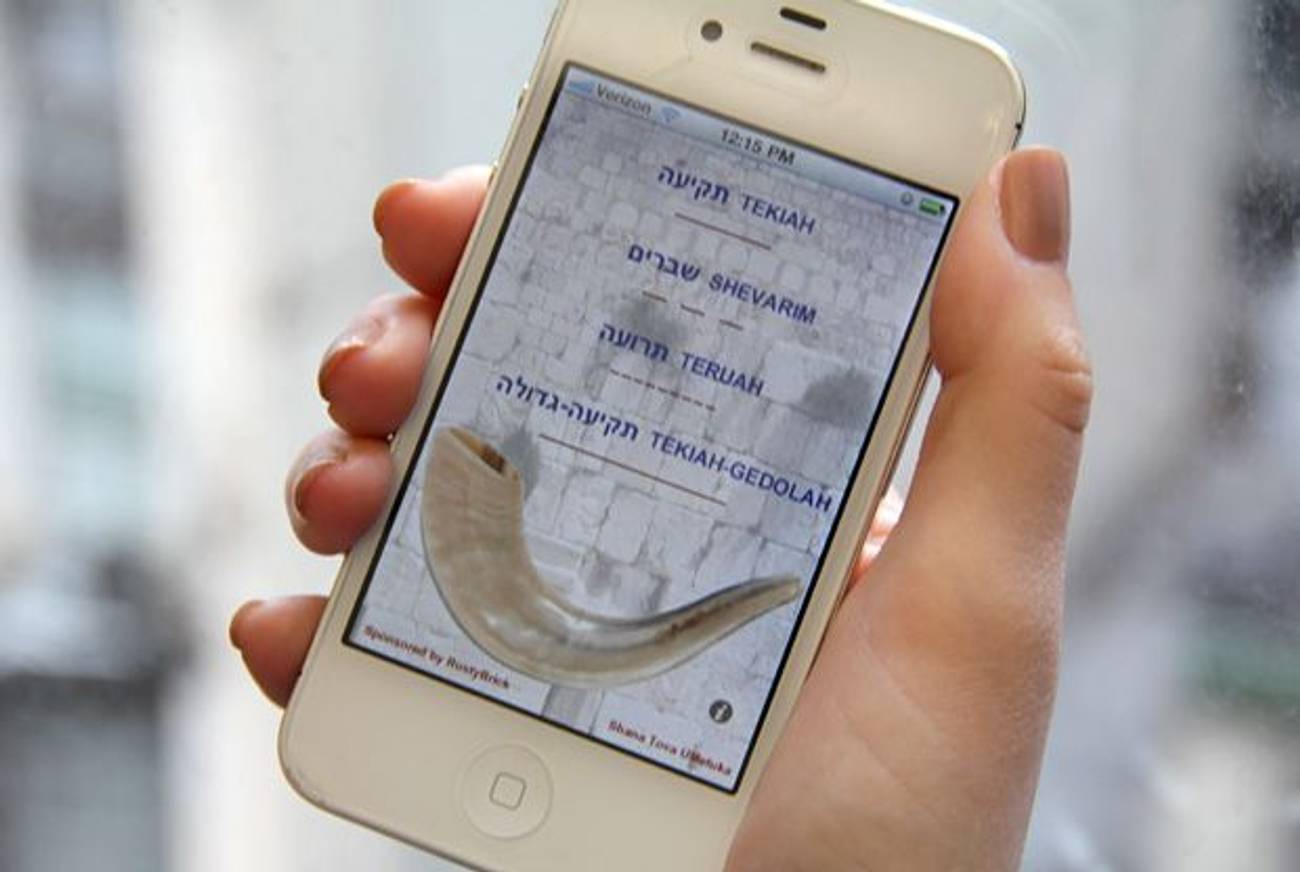An App for That
From an iPhone shofar to smart Siddurs, the software company founded by twins Barry and Ronnie Schwartz dominates the Jewish app market




Far from the sleek offices of Silicon Valley, a nondescript office building off the New York Thruway in Suffern, N.Y., just over the New Jersey border, houses the headquarters of RustyBrick, a modest web-development company with some higher concerns. Founded and run by brothers Barry and Ronnie Schwartz, 31-year-old fraternal twins, RustyBrick has cornered the market on iPhone and iPad applications for observant Jews.
The Schwartz brothers are tech-savvy Modern Orthodox Jews, which makes them well-positioned to forecast their customers’ desires. “Anything we find useful that we want in our phone, we’ll develop,” Barry Schwartz said. RustyBrick’s 25 Jewish apps include an iPhone Siddur, an iPhone Tanach, and a Shabbat app that provides candle-lighting times and has been downloaded more than 400,000 times. RustyBrick’s shofar app—a simple, free, and, it must be said, completely irritating application that plays the four distinct shofar sounds, was downloaded thousands of times in the days leading up to Rosh Hashanah last year, Barry said.
When the twins were in high school in Monsey, N.Y., the nearby ultra-Orthodox hamlet, Ronnie discovered a knack for design and software development. They formed their company in 1999, while they were both in college; today they have 19 employees. Barry, the charismatic brother, handles the business operations, while Ronnie, more reserved, oversees software development. “Anything not related to technology I do,” Barry said. “We overlap,” Ronnie corrected. Twins.
The Siddur was the first iPhone app they developed, in 2008; Barry, who bought the first-generation iPhone, wanted to have a prayerbook on his new device. “There’s a lot of math put in there,” Ronnie said of the Siddur, which took him several years to complete and which he still tweaks and updates. The Siddur adjusts both to its user and the changing Jewish calendar, enabling a user to store preferences—Ashkenazic or Sephardic, for example—and see what prayers to say on a specific day at a specific time.
Observant Jews, of course, don’t use technology during Shabbat and other holidays, returning to their bound, old-fashioned prayerbooks. RustyBrick’s apps account for that. “It actually grays out certain prayers on Shabbos,” Barry said, “not that we can stop people from opening the app.” The blocking of text is not a rebuke, but a reminder: “We don’t want them to pray a weekday davening on a Shabbos,” Barry said. “We gray out things so they can’t access it.”
One of the more gimmicky yet cool features of the Siddur app is a world map that allows users to see where other people are using the application at that moment. In the mornings, they often see 300 to 400 people on the map, all praying with the Siddur. While users can turn off that feature within the application settings, many don’t. One year, Ronnie recalled, he was in Israel on Yom Kippur, and when the holiday was over, he clicked on the map to find other people in other parts of the world where Yom Kippur was still going on, also using the app. But what can you do?
These products enable a moderately tech-savvy consumer to connect with more traditional elements of worship. The RustyBrick brothers are less inclined to play up this angle of their work, preferring instead to explain the intricate, and impressive, features of their apps. Barry’s favorite part is the interactive mi’ sheberach list, where a user can add the name of a person he wants to pray for. Provided your settings have enabled this feature, other users can see that name. “People in the iPhone community can actually pray for each other,” Barry said.
The Schwartzes’ latest project is poised to move RustyBrick from personal technology to something closer to business services: their recently lauched ShulCloud. Based on the reasonable notion that synagogues generally use outdated, confusing electronic systems, they developed subscription-based software for synagogues—it streamlines email services and offers members the option of online payment. “We’re trying to make the life of anyone involved in running a shul much, much easier,” Barry said.
But for now it’s the apps that remain the heart of the brothers’ business. Through the smart Siddur, you can automatically sync the Jewish calendar with an iPhone or Apple computer’s secular iCalendar. “It brings the Jewish stuff into the secular calendar,” Ronnie said, summing up the feature and, inadvertently, the business.
Stephanie Butnick is chief strategy officer of Tablet Magazine, co-founder of Tablet Studios, and a host of the Unorthodox podcast.